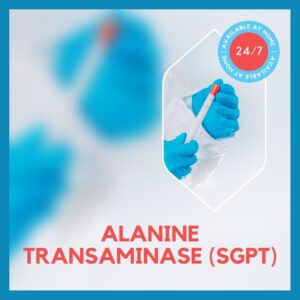Clinical Significance
HbA1c, also known as Hemoglobin A1c or A1c, is glycosylated haemoglobin or glycohemoglobin in which the glucose molecule present in the blood non-enzymatically binds to haemoglobin. HbA1c test reflects those RBC that are present in the blood at the time of test and measures average blood glucose concentration over 3-4 months. This gives an indication of long term blood glucose control which serves as a regular monitoring tool if a person has been diagnosed with diabetes. According to the American Diabetes Association, this test is mandatory for diabetic patients and should be performed four times a year.
su_spoiler title=”Technique” open=”no” style=”default” icon=”plus” anchor=”” anchor_in_url=”no” class=””]
H.P.L.C
[/su_spoiler]
[su_spoiler title=”Who Prescribes” open=”no” style=”default” icon=”plus” anchor=”” anchor_in_url=”no” class=””]
Diabetologist,Endocrinologists,General physician,General Medicine
[/su_spoiler]
[su_spoiler title=”Reporting Tat” open=”no” style=”default” icon=”plus” anchor=”” anchor_in_url=”no” class=””]
4
[/su_spoiler]
[su_spoiler title=”Sample Type” open=”no” style=”default” icon=”plus” anchor=”” anchor_in_url=”no” class=””]
EDTA
[/su_spoiler]
[su_spoiler title=”Fasting” open=”no” style=”default” icon=”plus” anchor=”” anchor_in_url=”no” class=””]
N
[/su_spoiler]





Reviews
There are no reviews yet.